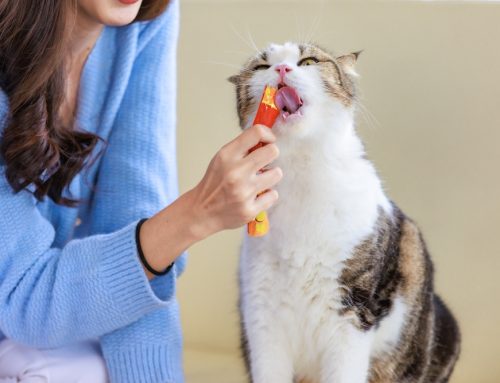Heartworm disease is a common conversation topic during veterinary wellness visits. While most pet owners know this condition is dangerous, they often question the need for regular parasite prevention, the disease’s severity, and their pet’s risk. Help safeguard your pet from contracting this deadly condition by reading our Neighborhood Veterinary Centers of Calder team’s answers to your frequently asked questions about heartworm disease and prevention.
Question: How is heartworm disease transmitted?
Answer: An infected mosquito’s bite transmits heartworms. When mosquitoes bite and feed on a pet dog or wild canid infected with heartworm disease, they ingest the larvae of Dirofilaria immitis—a blood-borne parasite. If an infected mosquito takes their next blood meal from your pet, they can transfer the infective larvae to your four-legged friend.
Q: How dangerous is heartworm disease for pets?
A: Heartworm disease is a serious and potentially fatal disease in pets. If an infected mosquito bites your dog, the parasitic worms will mature into adults and reproduce while living in your pet’s heart, lungs, and blood vessels. Over time, heartworms can cause severe lung disease and heart failure, and damage the body’s other vital organs. Left untreated, the disease is often fatal.
Q: What pet species can contract heartworm disease?
A: Heartworm disease affects dogs, cats, ferrets, and some wild animals such as wolves, coyotes, and foxes. Because foxes and coyotes often live in proximity to many urban areas, they are considered common heartworm disease carriers that enable mosquitoes to transmit the parasites to the following pet species:
- Dogs — Dogs are natural heartworm hosts, which means that heartworms can easily live inside their body, mature into adults, mate, and reproduce. While each dog’s worm burden (i.e., the number of worms an individual host carries) varies, these pets can harbor several hundred worms in their bodies.
- Cats — Heartworm disease in cats is different from heartworm disease in dogs. Unlike dogs, cats are not natural heartworm disease hosts, so the heartworm life cycle is not assured. While heartworms prefer canine hosts, they can still create a massive feline inflammatory response, causing respiratory disease, and sometimes sudden death.
- Ferrets — Ferrets are highly susceptible to heartworm disease, and one or two adult worms can affect them in a manner similar to cats. Although heartworm-positive ferrets exhibit signs similar to those in dogs, no treatment is available, and a ferret-safe disease prevention product is necessary.
Q: What are heartworm disease signs in pets?
A: Early heartworm disease causes few signs, which makes diagnosis challenging. Because dogs are natural heartworm hosts and cats are not, each species’ signs can vary, with cats sometimes showing none. After the worms have reached maturity inside their heart and major lung vessels, an infected dog or ferret usually shows the following signs:
- Exercise intolerance
- Lethargy
- Appetite loss
- Vomiting
- Pot-bellied appearance
- Respiratory distress
- Collapse
- Sudden death
In cats, the parasite can cause the syndrome heartworm associated respiratory disease (HARD). Cat may exhibit the following heartworm disease signs:
- Lethargy
- Vomiting
- Appetite loss
- Coughing
- Asthma-like attacks
- Weight loss
Q: How often should my pet be tested for heartworm disease?
A: The American Heartworm Society encourages pet owners to have their pets tested for this life-threatening condition every 12 months. To ensure a pet’s preventives are working effectively, annual testing is necessary for all dogs, cats, and ferrets. Testing differs somewhat between species:
- Heartworm testing in dogs — Your veterinarian can use two blood tests to determine whether your dog has contracted heartworm disease. An antigen test detects specific heartworm proteins that adult female heartworms release into a dog’s bloodstream. Another test detects microfilariae in a dog’s bloodstream. Because only adult heartworms can mate and produce microfilariae, if the test shows microfilariae in your dog’s bloodstream, your veterinarian can confirm that your four-legged friend is infected with adult heartworms.
- Heartworm testing in cats — Because cats are less likely to have adult heartworms, your veterinarian will have a difficult time detecting whether your feline friend has contracted the disease. Veterinarians’ preferred feline screening method includes antigen and antibody tests. Your veterinarian may also perform X-rays or an ultrasound to determine whether your cat has a heartworm infection.
- Heartworm testing in ferrets — Detecting heartworm disease in ferrets is extremely challenging, and your veterinarian may recommend antigen testing and diagnostic imaging such as echocardiography.
Q: How is heartworm disease treated in pets?
A: If your dog tests positive for heartworms, treatment—although costly and complex—is available. Canine heartworm disease treatment often requires multiple veterinary visits for blood tests, X-rays, and injections, performed over several months. To prevent excessive damage to your dog’s heart and lungs, you must restrict your four-legged friend’s activity before and during treatment. The restriction is especially important during the treatment phase when the dead and dying worms can form a life-threatening blood vessel blockage. During the treatment process, your pet will receive a series of deep intramuscular injections to kill off adult heartworms. Unfortunately, if your cat tests heartworm-positive, no treatment is available, and managing their heartworm-associated respiratory illness is the only viable care option.

Q: How can I protect my pet from heartworm disease?
A: Year-round prevention is the only way to help prevent your pet from contracting heartworm disease. Fortunately, many heartworm preventive types are available, including topical, oral, and injectable forms. Your veterinarian can customize your pet’s parasite prevention program.
By ensuring your pet receives regular preventive administration and annual testing, you help safeguard them from contracting life-threatening heartworm disease. To discuss your pet’s parasite prevention options and schedule their annual heartworm test, schedule your four-legged friend’s appointment with our Neighborhood Veterinary Centers of Calder team.






Leave A Comment